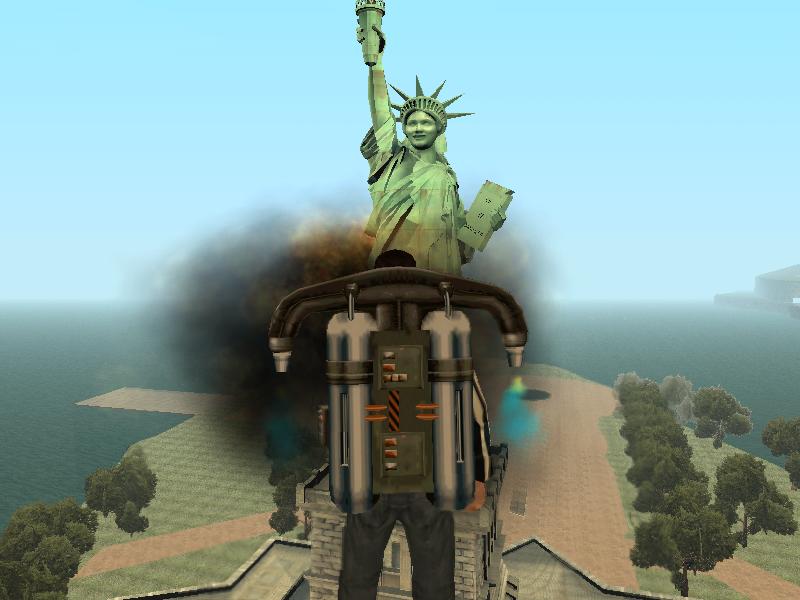One hundred years ago, in one of my favourite novels, F. Scott Fitzgerald allegorised the death of the American Dream in The Great Gatsby. The promise of making it in the world, of being able to rise above one's assigned status was one that formed the founding of the Constitution, and of the deplorable Second Amendment that shortly followed - that the freedom of the individual had the right to strike back against governmental dictats.
In the past week, we have seen sadly all too-recognisable horror in The States, following two mass shootings. The subsequent fallout has seen people across the media and political spectrum, blame, amongst other elements, videogames. as a significant trigger, despite the overwhelming and regular evidence that suggests otherwise. My own first encounter with this blame-shifting came in 1998, following the massacre at Columbine. I remember, as a very young teenager, reading of Quake and Marilyn Manson as key triggers for the shooters.
Since those shootings, and considering the foundations of the 'American Dream', I've been thinking a lot about Grand Theft Auto IV, a game I can't say I particularly love - Rockstar games always seem more a curio than a game to be enjoyed to me. Yet, what sticks to me about the title, moreso than any other game in their canon, is the tragic arc that the character takes. Unlike Red Dead Redemption 2's solitary story, GTAIV casts a dark shadow not only over the protagonist, Niko Belllic's life, but over a country in which the society has been left to run, unchecked and unfettered by a 200 year old document. In doing so, it debunks the myth that videogames themselves cause violence, and instead looks at societal, political and economic causes that lead to people carrying out despicable acts of violence.
Grand Thedt Auto IV (Xbox 360, PS3, PC), 2013
With GTAIV I wish to specifically focus upon the ending of the game, so this is obviously a spoiler warning at this point.
In the initial trailer for the game, channeling the film Koyaanisqatsi with its initial trailer, Niko Bellic hints at his past - fleeing from violence, war crimes, and the horrors of Eastern Europe, evoking such tragedies as those in Sarajevo.
In Reggio's film, which the trailer replicates, down to the Phillip Glass score, the title translates in Hopi as 'a life filled with corruption', suggesting that Niko's dreams of escaping the horrors of his past to the 'utopia' of America will be one that is for naught.
And so it is.
Throughout the 20-30 hours of the game, whilst dating, drinking, bowling with your cousin, and other sidelines of modern privileged existence, Niko's character becomes embroiled in a cycle of violence, one which shadows itself under the illusion of 'The American Dream'. Much like Fitzgerald's Gatsby, Niko has to become someone else, someone who can adapt into a variety of circles, be they biker gangs or the mob, in order to make his way in the world. And this brings the core of the game, and the reality of America, to the fore. There is not a sense of 'every man makes his own way' in either the game, or the country.
Instead, what we have is a game in which there is one identity perpetrated, one in which the cycle of violence, guns, and power are perpetrated. In America, the only way to seem powerful is to look powerful.
The climax of the game is an extended chase sequence in which your character, Roman, your cousin, and a Rastafarian character named Jacob end up chasing after either the mob boss Jimmy who initially told them 'everybody is trying to fuck over each other - they just do it with smiles on their faces.,' or with another immigrant, Dimitri Rascalov. The second of these two stories is the one I wish to focus on.
Dimitri and Niko both share the same DNA in that they believe America will be the place where their lives can be changed for the better. Both are corruptedd by 'old' America, that is, Jimmy, where there is only the hegemony of 'America' as first and foremost one's own livelihood, as documented in the Constittuion.
Dimitri does murder Jimmy in this ending of the game, however this is only for Todorovian purposes, to take his place as the new face of this status quo.
At the end of the game, your character engages in a prolonged chase with Dimitri, only to end up murdering him. The site of this revenge? The Statue of Happiness, Liberty City's own version of New York's Statue of Liberty. Whilst the Houser brothers, voices of the game series, have never been known for their subtlety, the symbolism of the game's final act, one in which Niko becomes part of the system of violence, of destruction, of America, is an incredibly powerful one. Niko ends the game considerably richer than he started, but without the solace he was looking for when he first landed on Liberty City.
Games have the power to do more than give us power fantasies. They can comment, they can criticise, they can suggest new possibilities. Grand Theft Auto IV is an an incredible game in scope, if not always execution. Beyond the wanton mayhem that the series constantly provides, however, is a prescient, if not important, suggestion about the state of the Nation, the failings of its original document, but sadly, not a way out.


No comments:
Post a Comment